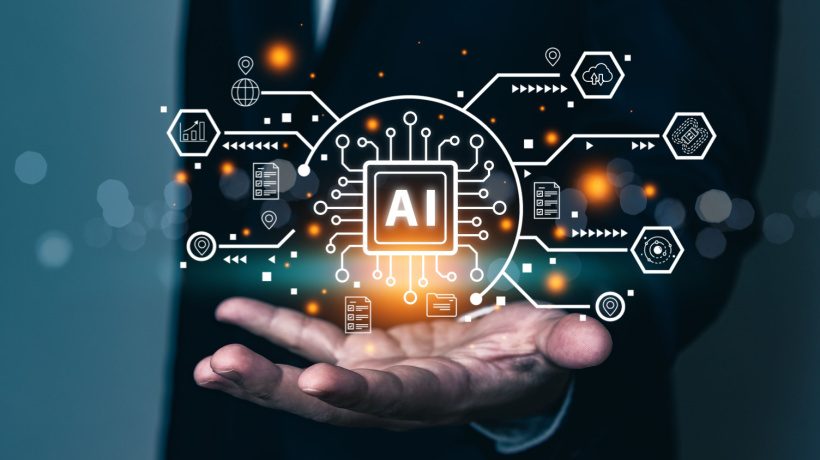Education has always been at the forefront of social progress and shaped the future of future generations. Due to the rapid development of artificial intelligence (AI) technology, people’s perception and supply of education has undergone major changes in recent years. By 2024, the integration of AI tools into educational environments will revolutionize traditional learning methods, paving the way for more personalized and effective learning methods.
The rise of artificial intelligence in education
Artificial intelligence has become a powerful tool in education, offering innovative solutions to age-old challenges. From personalized learning experiences to adaptive tutoring systems, artificial intelligence is reshaping the educational landscape, making education more accessible and inclusive for students of all ages and backgrounds.
The evolution of artificial intelligence tools in education
The development of artificial intelligence tools in education can be traced back to early experiments with computer-assisted education. Over the years, artificial intelligence has evolved from simple, rule-based systems to complex machine learning algorithms that can analyze large amounts of data to provide students with personalized recommendations and feedback.
Current status of education
The traditional education system has long been plagued by challenges such as overcrowded classrooms, limited resources and one-size-fits-all teaching methods. There is increasing recognition of the need for educational innovation to address these issues and better meet the diverse needs of 21st century learners.
Challenges to traditional education
Traditional education systems often fail to accommodate students’ individual learning styles and paces, leading to student disengagement and frustration. Furthermore, rapid technological developments have made many traditional teaching methods obsolete, underscoring the need for more dynamic and adaptable teaching methods.
The need for educational innovation
Innovation in education is critical to ensuring students have the skills and knowledge they need to thrive in an increasingly complex and interconnected world. Artificial intelligence offers a unique opportunity to revolutionize education by providing a personalized learning experience based on the unique needs and abilities of each student.
How artificial intelligence is changing education
Artificial intelligence is transforming education by providing personalized learning experiences that adapt to the needs and preferences of individual students.
Personalized learning experience
AI-powered adaptive learning platforms analyze student data to identify strengths and weaknesses, allowing teachers to tailor instruction to the specific needs of each student. This personalized approach ensures that students remain engaged and motivated, which improves learning outcomes.
Adaptive learning platform
Intelligent tutoring systems use artificial intelligence algorithms to provide real-time feedback and guidance as students complete interactive lessons and activities. These systems adapt to each student’s learning pace and style and provide targeted support to help them master challenging concepts and skills.
Intelligent tutoring system
Intelligent tutoring systems use artificial intelligence to create interactive learning experiences that simulate real-world scenarios and challenges. By providing immediate feedback and guidance, these systems help students develop critical thinking, problem solving and decision-making skills in a safe and supportive environment.
AI tools improve the classroom experience
Artificial intelligence-powered tools such as virtual reality (VR) and augmented reality (AR) are transforming the classroom experience by providing immersive and interactive learning opportunities.
Virtual Reality (VR) and Augmented Reality (AR) in education
VR and AR technologies allow students to explore virtual environments and interact with digital objects in ways previously unthinkable. From virtual field trips to immersive science experiments, these technologies enhance learning by making abstract concepts concrete and engaging.
Gamification of learning
Gamification involves integrating game-like elements such as challenges, call
Meet the unique needs of each student to help them overcome learning barriers and achieve academic success.
narrowing the education gap
Artificial intelligence can help close the gaps in education by providing high-quality educational resources and personalized learning experiences to students in underserved communities and remote areas. By using AI-powered tools such as online learning platforms and mobile apps, educators can reach students who do not have access to traditional educational resources due to geographic or socio-economic barriers.
Ethical considerations and challenges
While AI has great potential to revolutionize education, it also poses important ethical considerations and challenges that need to be addressed to ensure it is used in a responsible and ethical manner.
Data privacy and security issues
AI-powered education technology collects and analyzes massive amounts of student data to provide personalized learning experiences and recommendations. However, this raises concerns about data privacy and security, as sensitive student information could be vulnerable to hacking or misuse if not adequately protected.
Biases and fairness in artificial intelligence algorithms
AI algorithms are only as impartial and fair as the data they are trained on. If not carefully designed and monitored, AI-powered education technologies can perpetuate or exacerbate existing biases and inequities. It is necessary to ensure that AI algorithms are transparent, accountable and free from bias to ensure fair and equal access to education for all students.
The future prospects of artificial intelligence in education
Looking to the future, the future of education looks bright as artificial intelligence technology is increasingly integrated into the educational environment.
Continuous learning and lifelong learning
The AI-powered adaptive learning platform enables students to engage in continuous learning and lifelong education, acquiring new skills and knowledge throughout their lives to adapt to the needs of a rapidly changing labor market.
Artificial intelligence integrated into the formal education system
As AI technologies become more advanced and easier to use, we expect AI to become more integrated into formal education systems, from primary schools to higher education institutions. Artificial intelligence tools will play an increasingly important role in curriculum development, teaching, assessment and student support services, making education more personalized, effective and inclusive.
finally
In summary, AI is revolutionizing education by providing personalized learning experiences, improving the classroom experience and overcoming educational barriers. However, ethical considerations and challenges need to be addressed to ensure that AI is used in a responsible and ethical manner. With careful planning and implementation, AI has the potential to transform education and help 21st century students reach their full potential.
Unique frequently asked questions
What are some examples of AI tools used in education?
AI tools for education include adaptive learning platforms, intelligent tutoring systems, virtual reality (VR) and augmented reality (AR) technologies, and gamified learning platforms.
How can artificial intelligence provide students with a personalized learning experience?
Artificial intelligence analyzes student data to determine individual learning needs and preferences, allowing teachers to tailor instruction and provide targeted support to each student.
What are the ethical considerations regarding artificial intelligence in education?
Ethical considerations regarding AI in education include concerns about data privacy and security, bias and fairness of AI algorithms, and the potential of technology to exacerbate existing inequities in education.
How can artificial intelligence help close the education gap?
Artificial intelligence can help close the gaps in education by providing high-quality educational resources and personalized learning experiences to students in underserved communities and remote areas.
What are the future prospects of artificial intelligence in education?
The future of artificial intelligence in education looks bright. As the technology




